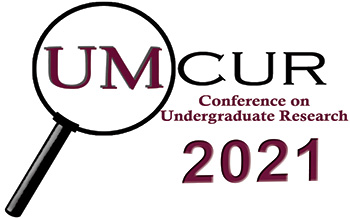Project Type
Presentation
Faculty Mentor’s Full Name
Phyllis Ngai
Faculty Mentor’s Department
Department of Communication Studies
Abstract / Artist's Statement
Information collected and distributed by and on news and social media outlets has manifested in the political biases of its users. This issue led to political polarization and ethnic prejudice. To combat this problem, we applied the Human Centered Design method to develop a project that enhances media literacy to help reduce biases toward ethnic minorities. During the Inspiration Phase, we conducted interviews with experts, surveys, and an extensive literature review. Through our research and feedback from over 40 partners, we found that access to social media literacy education is virtually non-existent -- hence the need for a comprehensive, easily digestible informational package. For the Ideation Phase, we created an online educational package. Our website provides the resources to check personal biases and recognize ethnic prejudices. Our resources use interactive elements to educate users on how the use of media can exacerbate ethnic prejudices. During the Implementation Phase, we conducted an interactive webinar to inform leaders of diverse communities and organizations about the website and encourage them to apply and share these educational tools. We relied on 40 partners in 22 states and 14 countries to promote our educational package in their respective networks. We applied pre/post-experience surveys concerning media usage and subsequent bias to assess and document the outcomes and impact of our project. We also tracked the spread of attendance of the webinar. According to the analytics data collected through The MMM Initiative website, hundreds of people have accessed our website with an accumulation of over 1,000 views between January and March 2021. We expect this to continue to grow exponentially as the benefits of our educational package are spread. The global reach of our project promises to contribute to reducing prejudice against ethnic minorities exacerbated by biases on social media.
Category
Franke Global Leadership Initiative
Presentation slides
The MMM Initiative
Information collected and distributed by and on news and social media outlets has manifested in the political biases of its users. This issue led to political polarization and ethnic prejudice. To combat this problem, we applied the Human Centered Design method to develop a project that enhances media literacy to help reduce biases toward ethnic minorities. During the Inspiration Phase, we conducted interviews with experts, surveys, and an extensive literature review. Through our research and feedback from over 40 partners, we found that access to social media literacy education is virtually non-existent -- hence the need for a comprehensive, easily digestible informational package. For the Ideation Phase, we created an online educational package. Our website provides the resources to check personal biases and recognize ethnic prejudices. Our resources use interactive elements to educate users on how the use of media can exacerbate ethnic prejudices. During the Implementation Phase, we conducted an interactive webinar to inform leaders of diverse communities and organizations about the website and encourage them to apply and share these educational tools. We relied on 40 partners in 22 states and 14 countries to promote our educational package in their respective networks. We applied pre/post-experience surveys concerning media usage and subsequent bias to assess and document the outcomes and impact of our project. We also tracked the spread of attendance of the webinar. According to the analytics data collected through The MMM Initiative website, hundreds of people have accessed our website with an accumulation of over 1,000 views between January and March 2021. We expect this to continue to grow exponentially as the benefits of our educational package are spread. The global reach of our project promises to contribute to reducing prejudice against ethnic minorities exacerbated by biases on social media.
